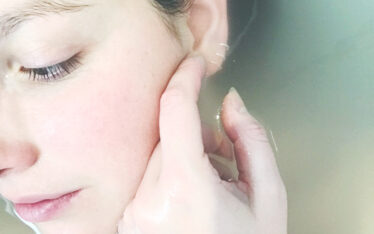Most of us have experienced it at one point or another – that unwelcome breakout right before or during our menstrual cycle. Known as period acne, these breakouts can be both annoying and perplexing. Why do they happen with such regularity for so many people? The answer, in short, is hormones.
1. The Role of Hormones:
Our skin’s condition is intricately linked to our hormonal balance. Throughout the menstrual cycle, our hormone levels fluctuate, and two primary culprits behind period acne are progesterone and testosterone. Post-ovulation, there’s a spike in progesterone, which can cause the skin to produce more oil. At the same time, our bodies also experience a relative increase in testosterone. Both these factors lead to oily skin, which is a conducive environment for acne.
2. Clogged Pores and Acne Formation:
The excess oil (sebum) produced due to hormonal shifts can combine with dead skin cells, leading to clogged pores. Once these pores are clogged, it creates a perfect setting for P. acnes bacteria, which reside on our skin, to proliferate. This bacterial overgrowth triggers an inflammatory response, leading to red, painful pimples.
3. Other Contributing Factors:
While hormones are the main actors in this drama, there are supporting characters. Stress can exacerbate period acne, as it prompts the adrenal gland to produce more androgens – another type of hormone that can stimulate oil glands. Moreover, our dietary choices, particularly high sugar intake or dairy, might contribute to some people’s breakouts.
4. Why Not Everyone Experiences It:
It’s essential to remember that not everyone will get period acne. Genetics play a role in determining our skin type, acne susceptibility, and how our bodies respond to hormonal fluctuations. Some individuals might experience minor breakouts, while others may have more severe reactions.
5. Addressing Period Acne:
Knowledge is the first step. By understanding the underlying causes, we can adopt measures to reduce period acne’s severity or frequency:
- Skincare: Gentle exfoliation can prevent the buildup of dead skin cells. Using non-comedogenic products can also help minimize pore-clogging.
- Diet: Monitoring one’s diet and reducing the intake of sugar or dairy might help some individuals. Drinking ample water ensures that the skin remains hydrated and toxins get flushed out.
- Stress Management: Adopting relaxation techniques like yoga or meditation can keep stress levels in check, potentially reducing breakouts.
- Medical Treatments: For those who experience severe period acne, consulting a dermatologist can be beneficial. They might prescribe topical treatments, oral medications, or hormonal therapies to balance hormone levels.
In conclusion, period acne is primarily a manifestation of our body’s natural hormonal fluctuations. While it can be frustrating, understanding its causes can help in developing effective strategies to tackle it. Regular skincare, a balanced diet, and managing stress can all play a part in maintaining clear, healthy skin throughout the menstrual cycle.





